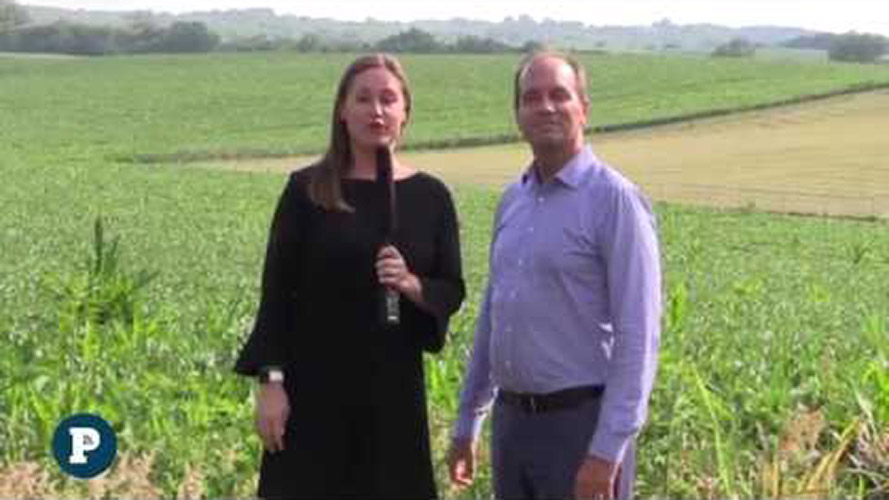3 Message Themes to Prioritize in Crisis Communication
During a recent crisis communication workshop in Kansas City with one of our food industry clients, The Predictive Media Network’s Russ Rhea was joined by Jenny Gregorcyk from Apron Food PR. They discussed some important message themes to keep in mind when responding to a crisis.
Jenny Gregorcyk:
Hey everybody, Jenny Gregorcyk and Russ Rhea here coming to you from Kansas City, Missouri, today. We’ve been up here visiting one of our agriculture clients today, helping them prepare for some potential crisis scenarios. We’ve been working with them over the past couple months to develop their crisis plan, and today we put that plan into action with a round of media training led by Russ, here. Russ, tell me a little bit about the top things that you hope our media training participants take away from one of your sessions.
Russ Rhea
– Yeah, the three big themes in terms of top of mind level things when communicating in a crisis are: Number one, express empathy. Number two, stay in the present is our rule. And number three, another very important thing, is to keep it simple. So in a crisis, no one really expects you to have a lot of details at the beginning, so a safe place to be is to have a few simple messages that you stick to and you’re comfortable with repetition throughout the interview. Here’s a good example where the Chipotle CEO stuck to that principal of keeping it simple.
Steve Ells, Chipotle CEO:
– It’s a really tough time. But first I have to say I’m sorry for the people who got sick. They’re having a tough time and I feel terrible about that, and we’re doing a lot to rectify this and to make sure that this doesn’t happen again. Is that it has caused us to put in place practices that our epidemiologist expert, Dr. som-en-por says will put us 10 to 15 years ahead of industry norms and I believe this will be the safest restaurant to eat at. This was a very unfortunate incident and I’m deeply sorry this happened but the procedures we’re putting in place today are so above industry norms that we are going to be the safest place to eat.
Russ Rhea
– Okay, so our other two high level rules, express empathy and stay in the present. If there are any victims involved the number one thing to do is to express concern and empathize for the victims and those impacted by the crisis and taking care of the people who are impacted by it, that’s number one. And then our rule, stay in the present, what we mean by that is you have a tendency to get a lot of questions about negative things in the past or speculative questions, hypotheticals trying to get you to talk about the possible cause, things along those lines. But if you stay in the present, I mean, talk about what you’re doing right now to make the situation right, what you’re doing to take care of those impacted by it, is a very safe place to be with your messaging. Now a good example on both of those things is the very first press conference by the president of Virginia Tech University and the police chief following that tragic shooting.
Virginia Tech University spokespeople:
– At this point in time we are focusing on dealing with the tremendous grief that these families are facing, that’s where we’re putting our energy. We’ll look at how we can improve after the immediate crisis is over.
– Obviously the most important thing for us that we’ve been trying to focus on is the care of the families that are left behind here.
– And this is a tragic, tragic event. I can’t express how much sorrow I feel for the families and everyone involved in this incident.
Jenny Gregorcyk:
– Alright, and there you have it. Three great things to keep in mind for preparing for any kind of media interview. And that wraps up our day in Kansas City Russ, what do you say let’s go get some K.C. Bar B.Q. before we head home.
Russ Rhea:
– Oh man, we got just enough time to take advantage of that, let’s do it.

